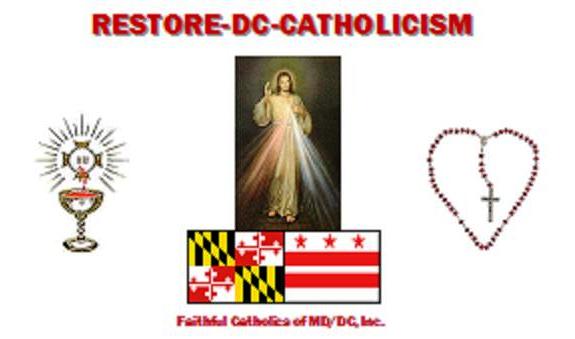The pace of the current pope's attempts to deconstruct the traditions as espoused by his predecessors is increasing to a pace that is difficult to match. The pope recently referred to the death penalty as a mortal sin. From America magazine we read how he equated the death penalty with slavery, saying erroneously that they were both considered acceptable. Note - before some say that this article simply reflects America's progressive leanings, a careful read of the byline will reveal that this article is a reprint of a piece from Catholic News Service, the news outlet of the USCCB. Why USCCB is clasping hands with this heretic rag will have to be a topic for a future post. Suffice it to say that I've no reason to doubt the factual accuracy of the pope's quoted statements.
Nowhere in Scripture or Tradition is the practice of slavery condoned, let alone promoted as a social good. Individual Christians may have been embroiled in it, but that does not mean the Church hierarchy gave official approval of slavery. Sacred Tradition, on the other hand, has always held that the death penalty is a legitimate tool to be used by civil governments to facilitate the protection of the citizens under their care. Even St John Paul II acknowledged the same when he made his own abhorrence of the death penalty known.
In the America article, the pope pretends to be able to take what Sacred Tradition always acknowledged to be a tool for the maintenance of the public good and to make it into a mortal sin. He's trying to morph a moral good into an intrinsically moral evil. I remember a quote whereby the Lord chastises those who call "evil" "good" and vice versa. Let's move on.
Cardinal Coccopalmerio is President of the Pontifical Council For Legislative Texts. He's responsible for interpreting much of canon law. He recently said that Anglican orders may be, in some cases, valid. That is a direct contradiction of Apostolicae Curie, issued by Pope Leo XIII. In that papal bull, Pope Leo XIII declared (in section 36) "that ordinations carried out according to the Anglican rite have been, and are, absolutely null and utterly void". Pope Leo could not have been any clearer.
Here's the last one for this post. From Gloria TV we learn of the possibility that Humanae Vitae might be on the papal chopping block. Well, it's all about being "pastoral", isn't it? Will contraception be considered "pastoral" and "accompanying"? That would be a violation not only of Humanae Vitae, but of Evangelium Vitae, Casti Connubi, and most likely others - all teachings of Jesus Christ Himself.
Any sitting pope can only guard the Deposit of Faith. He cannot alter it. I'm not a canon lawyer so I ask that if Pope Francis were to solemnly proclaim these errors to be truth, would said declaration show his papacy to be illegitimate?
Subscribe to:
Post Comments (Atom)








Bergoglio is influence by Satan-that is all you need to know.
ReplyDeleteI would tend to agree, philip.......he and Cardinal Cocopuffs and the entire cabal he has around him.
ReplyDeleteGood question. But it's funny, and I am doing this as well, that we keep observing an outrage and yet continuing to ask if this is enough to declare once and for all he is a manifest heretic. We never quite arrive. It's like Groundhog Day all over again. Every day.
ReplyDeleteThe recent Lay Theologians conference in Rome brought out the fact that not only "formal Heresy", but also "promoting heresy" by a sitting pope was historically subjected to fraternal correction by competent Church authority.This seems to correspond to the writings of St. Thomas Aquinas and St. Robert Bellarmine. Canon law seems to have come into use as we know it only in the 12th century. The question of whether the Pope remains legitimate in these cases appears to be more of a Theological nature than a question for canon lawyers, and the authority to make and act on the decision regarding the Pope appears to be with the Church authorities, which means the Cardinal Bishops(technically cardinals need not be bishops), and maybe other bishops as well.
Delete